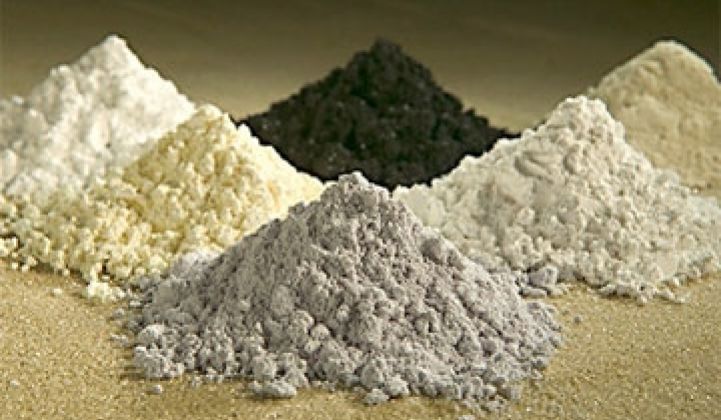Molycorp, the Cinderella of the mining industry, said today that it would buy 90 percent of AS Silmet, a European supplier of rare earth minerals.
Once the transaction is complete, Silmet will take rare earth oxides from Molycorp's Mountain Pass, California mine and produce metals and oxides for sale to magnet manufacturers in Russia and Europe. In particular, Silmet will focus on making didymium metal, used in magnets for electronics, wind turbines and other equipment.
Molycorp bought the controlling stake in Silmet for $89 million. Back in 2008, Chevron spun off the Mountain Pass mine to Molycorp for $80 million. Molycorp held an IPO last year and has since seen its stock climb from $13 a share to more than $64. The company itself is now worth over $4 billion. Savor the irony.
The insane increase in the value of Molycorp derives from a worldwide panic over the price and availability of rare earth minerals. Worldwide demand for rare earth minerals comes to around 50,000 to 55,000 tons a year, according to Mark Smith, Molycorp CEO, and China produces close to 97 percent of the total. In 2009, China's export quotas sat at approximately 50,000 tons. In 2010, China dropped it to 30,000 tons and will cut it this year to 24,000 tons. As a result, the price for some rare earth oxides such as neodymium oxide have risen from $20,000 a ton in 2009 to $165,000 a ton, according to our own spot checks.
“This is an immediate concern,” Smith said last November. “A lot of people we are signing long-term agreements with are very tired of not knowing day to day. You have no idea what to expect.”
Demand, moreover, is slated to continue to rise. A 2.5-megawatt wind turbine contains approximately 4,000 pounds of magnets. Rare earth materials account for one-third of the weight of those magnets. LCD TVs and medical imaging equipment rely on rare earths, too.
Electric cars contain around 10 pounds of rare earth materials. Even if China shifts from exporting raw rare earth materials to finished goods containing rare earths, domestic consumption will invariably curb total exports to the West. Still, I think the company should send China's Premier a fruit basket or something.
The Mountain Pass mine in California contains ores with an average grade of 8.24 percent rare earth content. That’s the second richest average ore grade in the world, Smith asserted. The mine also contains one of the largest deposits in the world.
As part of an 'Employ America' strategy, the company last year signed a deal with Hitachi under which Hitachi will get access to minerals but will also build a rare earth magnet factory, with Molycorp, here in the good ol' USA. Like Silmet, the Hitachi deal effectively allows Molycorp to move from being a procurer of raw materials to a manufacturer.
Of course, what goes up can come down. A reversal of policy in China could bring the stock price way down. Other companies are also exploring defunct rare earth sites in Australia. The Mountain Pass mine, meanwhile, is not yet operational, and it may take close to $100 million in upgrades and updates to reopen it. By the end of 2012, the company hopes to be producing 20,0000 tons of rare earth oxides a year.



